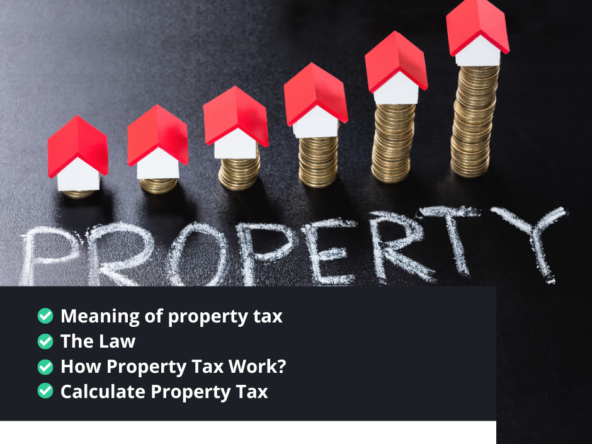UGANDA REAL ESTATE MARKET IS AN INVESTOR’S GOLDMINE
Overview of the Housing Market
Housing Demand: According to Uganda Bureau of Statistics, demand for housing continues to grow in Uganda, amidst rapid population growth and urbanization. Uganda has a deficit of 2.1 million housing units growing at a rate of 200,000 units per year (www.globalpropertyguide.com). It is expected that by 2030 the Uganda’s housing deficit will have reached 3 million. The stability in market lending rates has encouraged an upsurge in mortgage finance in recent years.
Supply of Housing: Uganda produces an estimated 60,000 housing units against a demand of 200,000 housing units a year. Of this, 31% are categorized as temporary, 52% as semi-permanent and 16 % as permanent in the rural areas. The greater proportion of this is self-provided housing. In the urban areas, 6.9% are temporary, 27% are semi-permanent and more than 66% permanent (see https://housingfinanceafrica.org/countries/uganda/)
Why Invest: The market is segment has room for growth. This market feeds off the deficits and increase in urban populations and the desire to own their own dwellings, with the element of providing the modern lifestyle that is trend setting and inspirational- a means of success for owner, dweller, and occupants of such set ups.
Property markets
At the household level, the demand for residential real estate is still robust, particularly for housing units located in planned residential estates. Several property developers in the Greater Kampala Metropolitan Area (GKMA) covering the Kampala district and urban areas of Wakiso district have seen some of their on-sale properties bought in less than three months. Prices as measured by the Residential Property Price Index (RPPI) for GMKA fell by 5.8% over the quarter to March 2022 compared to a 4.5% decline over the quarter to December 2021.
This noted decrease in RPPI is mainly attributed to a 7.9% drop in Residential Property Inflation for Kampala in March 2022, compared to the earlier 17.4% increase over the quarter to December 2021.
The Middle-Class sector: Mainly employed in the formal sector and including those in the diaspora. This market is growing and receiving attention from various players in the industry. There are interested in residing in the Greater Metropolitan Kampala Area (GKMA), an area that has approximately 4 million people, 50% of the country’s total urban population. The appeal to target this sector is driven by the value proposition in terms of cost-benefit for buyer, and profit and growth for the developer.
Housing segment with most prospective homeowners being in the low-income segment of the population. Additionally, the newly implemented regulations on using retirement benefits to secure a residential mortgage offers an excellent opportunity for both lenders and housing developers to increase the scope of their product offering to this emerging niche.
According to United Nations figures, Africa’s population is estimated to hit over 2.5 billion in 2050.
A more than adequate economic growth will be realized on the continent. The middle class is expected to grow from 355 million to 1.1 billion in 2050 according to the African Development Bank. Thus, Africa stands to reap benefits from the market as it develops and expands its economic and population base.
If the continent has these two key elements: economic growth and population growth, the boom in real estate will indeed be there.
With respect to housing supply, Uganda’s high population growth rate at 3% coupled with a high urbanization rate translates into a widening gap between the demand and supply of decent housing units. The current housing deficit is estimated at 2.4 million housing units with the bulk of these falling in the affordable housing segment. On the supply side are private developers delivering housing units of approximately 1 000 units a year. These complement individual households developing their own residential units for owner occupation. Given the housing gap, nearly half (48.3%) of the country’s urban population live in informal settlements.
Yet Uganda’s growing population also presents a unique opportunity for investment in the residential housing marketplace. The current influx of housing units is largely in the middle to high-end space, targeting largely the corporate salaried income earner with access to mortgage facilities from the banking industry. However, the bulk of the 2.4 million housing units needed are in the affordable
Uganda has many renewable energy resources that could be used for energy production, including hydropower, biomass, solar energy, geothermal energy. Many of these have not yet been fully explored. The Ugandan government is developing projects with international development organizations to make better use of these renewable energy sources and such projects could present many opportunities.
Real estate in Uganda as a sector is a goldmine that which realtors and investors must explore.
Real Estate opportunities hidden in Uganda
Uganda’s growing population presents a unique opportunity for investment in the residential housing marketplace. The current influx of housing units is largely in the middle to high-end space, targeting largely the corporate salaried income earner with access to mortgage facilities from the banking industry. However, the bulk of the highlighted two million housing units is in the affordable housing segment with most prospective homeowners being in the low-income segment of the population.
Additionally, the newly implemented regulations on using retirement benefits to secure a residential mortgage offers an excellent opportunity for both lenders and housing developers to increase the scope of their product offering to this emerging niche.
Others who already own a home, are discovering property’s potential to create wealth. Instead of upgrading to a larger next home, they are starting to build property portfolios.
The sector is argued to be a viable emerging opportunity despite underlying issues of cost of living and inflation levels posing a challenge to its growth.
With the growth of emerging economies in Africa in general, where their economies are being diversified, propelling the growth of a healthy middle class, real estate markets expand along with them. Long-term residential rentals are argued to be one of the fastest ways for an investor to garner profits as the rising population in Africa calls for substantial development of decent shelter.
Vacation rentals which bring about renting an apartment or house for a short time, are a lucrative pool to garner profits for the region’s investors. The same benefits apply to home renovation flips that buy a property to rehabilitate it and sell it to the market.
Real estate is a profitable and growing sector in Africa. The rising population, expansion and diversification of the economy in the region’s active nations portray a healthy growth of the sector.
It is a matter of time for the market to take over the world’s leading markets.





